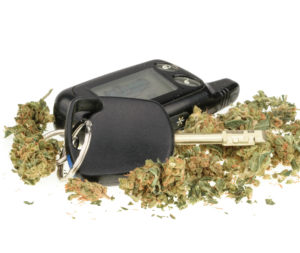
Beginning in December, some Minnesota police officers will begin using two new roadside devices to determine if someone is driving under the influence of drugs.
The two new roadside tests (the SoToxa Oral Fluid Mobile Analyzer and the Drager DrugTest 5000) are part of a pilot program that is being overseen by the Minnesota Office of Traffic Safety. Currently there is no widely accepted roadside test to determine if a person is under the influence of drugs like there is for alcohol, but the hope is that the program will allow officials to evaluate and certify which devices may become the norm in the future.
The new devices work by looking for the presence of THC and other drugs like opioids and methamphetamine in a person’s saliva.
“We do have a lot of tools available to us now,” said Mike Hanson, director of the Office of Traffic Safety. “But what we need to do is expand that toolbox as technology has gotten better.”
THC Roadside Tests
Although the devices could help to provide some more information about a driver’s impairment state, the decision to charge a person with a DWI will still be made by the officer or a trained drug recognition evaluator. During the pilot program, these specially-trained drug evaluators will be the ones carrying the new testing devices. Under the pilot program, the testing devices will only be administered if the driver consents to voluntary testing, and the results will not be permissible in court.
“It’s basically just another tool to confirm the officers’ observation that there is something on board that is causing the impairment,” Hanson said.
The program will run for about a year, and then information collected during the program will be compiled in a report to the state legislature by February 2025. Should the information prove helpful and reliable, legislators could approve expanded use of the devices throughout the state.
We want you to make a good choice and never get behind the wheel if you are under the influence of drugs or alcohol, but if a mistake happens, there’s no upside to providing a voluntary saliva sample to drug recognition experts. We’re still working to understand how accurately these devices detect the presence of THC, and if you legally smoked marijuana last night, there’s a possibility that the devices could still show THC in your system despite the fact that you are no longer experiencing the “high” sensation. There’s no reason to voluntarily submit at this time, so don’t offer up this evidence, because it could come back to bite you.
If you need help defending yourself against a drug or alcohol related DWI, reach out to Avery and the team at Appelman Law Firm today at (952) 224-2277.





